Every RV is a major purchase, and savvy shoppers always look for the best deal.
Though there’s no bigger bellyache to drive up your chances of suffering buyer’s remorse than having to pay inflated sales tax on top of the initial purchase price and all the dealership’s hidden fees.
You might be surprised to hear that sales tax rates can vary from state to state, and there are even some states that have zero sales tax on RV sales.
If you live in or are relatively close to one of these states, it might make sense to start shopping for RVs there.
For the cost of a little extra gas to drive it home, you could potentially end up saving thousands of dollars off the bottom line cost of buying an RV.
Though this is one of those times when the devil is in the details, and you need to take the time to understand the process of purchasing an RV in a state with zero or low sales tax.
You also need to be aware of some of the possible consequences that can come from purchasing an RV in another state.
Fortunately, we broke down the important details and some real-world examples of how it works in the following article.
Which States Have Zero RV Sales Tax
There are only five states do not charge sales tax on new or used RV purchases: Alaska, Delaware, Montana, New Hampshire, and Oregon.
If you live in one of these states, or you live on the border, shopping there can save you a fair amount of money.
Though the size of Alaska and Montana means you do need to consider driving distance and the cost of fuel to compare it against the sales tax savings.
What Are The States With The Lowest RV Sales Tax Rates?
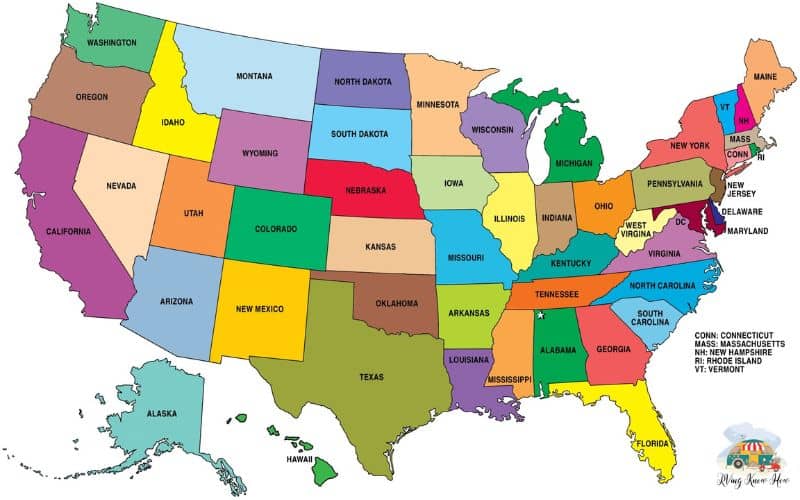
The next step up from zero percent RV sales tax is the low state taxes offered in Hawaii, Maine, Wisconsin, and Wyoming.
You also have to bear in mind that the state your register these RVs in will impact the taxes, as well as other registration costs. Not to mention that most states require you to be a legal resident to register a vehicle there.
There are also fine print costs to consider. Take, for example, Delaware, which has a zero percent state sales tax on RVs.
However, they have a 4.25% motor vehicle document fee, which is basically the same as paying sales tax.
What’s the RV Sales Tax in Each State?
You can use the following chart to get a better idea of what different state tax rates and regulations are when it comes to purchasing an RV.
| State | Taxes & RV Purchasing Regulations |
|---|---|
| Alabama | 2% + county rate+ city rate Must register within 20 days of purchase |
| Alaska | 0% + Municipal or County Taxes |
| Arizona | 5.6% + county + city Must register within 15 days of purchase |
| Arkansas | 6.5% + county + city Must register within 30 days of purchase |
| California | 7.25% + local Must register within 10 days of purchase |
| Colorado | 2.9% + county + city + district Must register within 60 days of purchase |
| Connecticut | 6.35% for vehicle $50k or less7.75% for vehicle over $50,000 Must meet emissions testing requirements |
| Delaware | No state tax for RVs but there is a 4.25% “Motor Vehicle Document Fee” |
| Florida | Pay local tax rate and must register within 10 days of purchase |
| Georgia | 6.6% and must register within 60 days of purchase. |
| Hawaii | 4.12% + county taxes apply. Must register within 30 days of purchase |
| Idaho | Taxes calculated by RV value tiers Must be registered within 60 days of purchase |
| Illinois | 6.25% and must be registered within 20 days of purchase. |
| Indiana | 7% and must be registered within 45 days of purchase. |
| Iowa | 5% and must be registered within 30 days of purchase. |
| Kansas | 7.3% to 8.775% Must be registered within 90 days of purchase |
| Kentucky | 6% |
| Louisiana | 4% and must register within 40 days of purchase |
| Maine | 5.5% and must register in person with the local municipality within 30 days of purchase. |
| Maryland | 6% and must register within 60 days of purchase. |
| Michigan | 6% and must register within 15 days of purchase. |
| Minnesota | 6,5% and must register within 60 days of purchase |
| Mississippi | 5% and must register within 30 days of purchase. |
| Missouri | 4.225% + Local tax Must register within 30 days of purchase. |
| Montana | No RV State Sales Tax Must register within 60 days of purchase. |
| Nebraska | 5.5% and must register within 30 days of purchase. |
| Nevada | 8.1% and must register within 30 days of purchase. |
| New Hampshire | No RV State Sales Tax, but registration fees for State and municipalities and pass an emissions test. Must register within 20 days of purchase. |
| New Jersey | 6.225% and must register within 60 days of purchase. |
| New Mexico | 4% and must register within 60 days of purchase. |
| New York | 4% and must register within 30 days of purchase or within 180 days of the effective insurance date. |
| North Carolina | 3% or to a maximum of $2,000. Must register within 30 days of purchase. |
| North Dakota | 5% and must register within 75 days of purchase. |
| Ohio | 5.75% and must register within 30 days of purchase. |
| Oklahoma | 3.25% and must register within 30 days of purchase. |
| Oregon | No state RV sales tax, but 1.5% business tax for an LLC RV. Must be registered within 30 days of purchase. |
| Pennsylvania | 6% statewide 7% for residents of Allegheny County 8% for City of Philadelphia residents Must register within 20 days |
| Rhode Island | 7% and must register within 30 days. |
| South Carolina | 6% and must register within 30 days. |
| South Dakota | 4.25% must register within 45 days. |
| Tennessee | 7% no timeframe for registration requirements. |
| Texas | 6.25% and must register within 30 days. |
| Utah | 6.85% + Documentation fee of $149 Must register within 60 days. |
| Vermont | 6% and must register within 60 days. |
| Virginia | 4.15% and must register within 30 days. |
| Washington | 6.5% and must register within 15 days. |
| Washington D.C. | 6% + Excise taxes of .3% or more. Must register within 60 days. |
| West Virginia | 6% + Titling fee. Must register within 30 days. |
| Wisconsin | 5% and the dealership handles registration requirements |
| Wyoming | 4% and you are required to self-register the vehicle as soon as possible. |
Is There A Way To Not Pay Tax On My RV In My Home State by Using a Montana LLC?
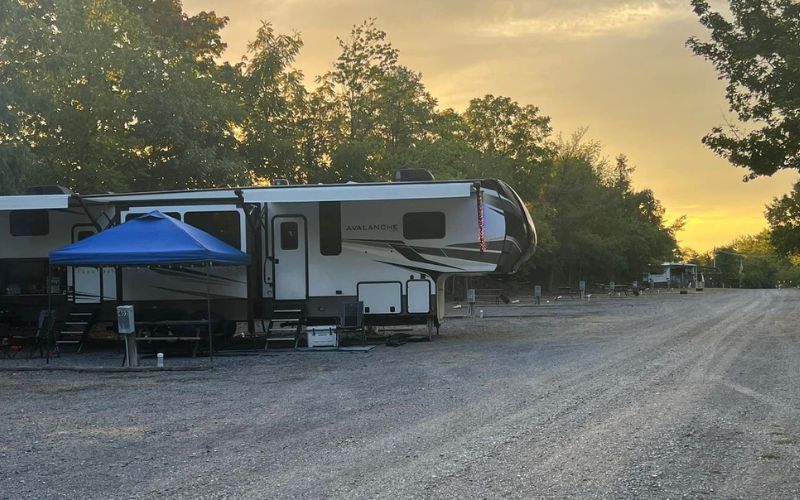
Let’s say that you bought your RV in another nearby state like Montana, and then you want to register it in your home state of South Dakota.
Technically South Dakota assesses a 4.25% tax on registered vehicles. If you simply drive it home to register it, you will be assessed that 4.25% sales tax. So, you will have done all that driving for nothing.
However, Montana does have a loophole provision, where you can establish an LLC (Limited Liability Company) as a registered business in Montana.
Montana Code § 61-3-303, and 61-3-324 have a provision entitled “Original registration — process – fees,”
This states that “A Montana resident who owns a motor vehicle, trailer, semitrailer, or pole trailer operated or driven upon the public highways of this state shall register the motor vehicle, trailer, semitrailer, or pole trailer in the office of the county treasurer in the county where the owner permanently resides or, if the motor vehicle, trailer, semitrailer, or pole trailer is owned by a corporation or used primarily for commercial purposes, in the county where the motor vehicle, trailer, semitrailer, or pole trailer is domiciled.”.
This legal code has been interpreted by the Montana Attorney General to mean that a Montana entity may make a legal registration in Montana.
Several Montana lawyers saw this as a great opportunity to make some money on the side and have created their own streamlined industry to help people establish an LLC for RV purchasers who want to avoid sales tax.
An example of how this might work starts with a $300,000 motorhome that you have your eye on.
If you lived in South Dakota where the sales tax on an RV is 4.25% they would tack on an extra $12,750.
How Much Does It Cost To Set Up An LLC In Montana?
The cost to have a Montana Attorney set up and LLC for you to purchase your RV ranges between $1,000 and $1,750.
Most will even mail you your Montana License plates when the state issues them as part of the cost. It takes about one to three business days to set up.
You could attempt to do all this paperwork yourself, but it will still cost you $849. If there is even a small error, it would cause massive delays and hamper your purchasing process.
It could also be a red flag for a lender who is underwriting the loan for the RV. So, it’s well worth it to simply pay an attorney for their time to ensure your LLC is set up correctly.
If you are a full-time, living in your RV, you might want to simply register yourself as a resident of Montana.
Then you can set yourself up with a mail forwarding system to be completely legal, and spare yourself some of the costs and paperwork headaches that come with establishing an LLC.
What Are The Registration Fees For An RV In Montana?
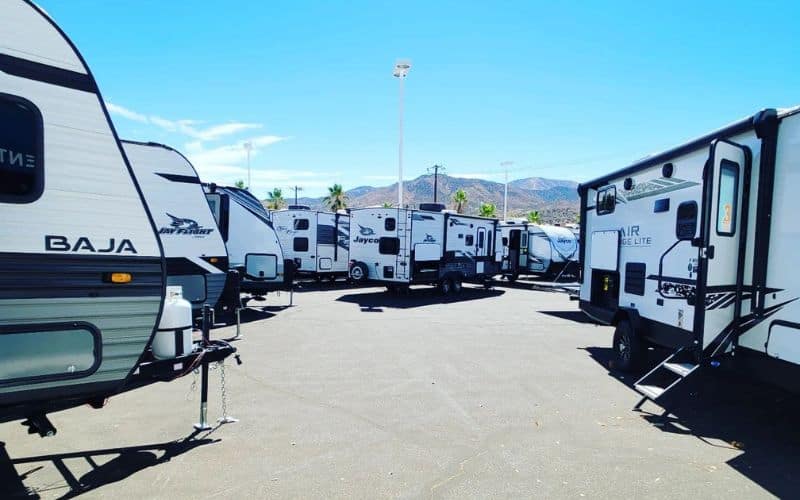
The annual registration fee for an RV in Montana is $282.50 for models thatare less than 2 years old.
Compare this to our previous example of living in South Dakota, where the registration fee for an RV is only $60.
This means that while you are saving money by not paying state taxes on your $300,000 RV purchased in Montana, you are still paying at least $1,000 more to establish an LLC and $222 more in registration fees.
This means that your money savings become less and less substantial when the initial purchase price of your Montana RV goes down.
Is It Legal To Use A Montana LLC To Purchase An RV Without Sales Tax?
This is a little bit of a sticky spot for some states. When you consider the large tax amounts that are normally spent on an RV, states are not happy watching that tax revenue go unpaid.
Currently, California, Georgia, Iowa, Massachusetts, Minnesota, Nebraska, and Wyoming have statutes designed to enforce a sales tax on a relatively new vehicle that has been recently purchased in another state and brought to theirs.
While they have different laws on the books regarding how this is done, most set a time limit window for registering an outstate vehicle at somewhere between 30-days to 6 weeks.
These are essentially the same requirements for changing your driver’s license if you were to move from another state.
If you go beyond that window of time without registering your new Montana-bought RV in your home state, it’s considered a crime.
Imagine a situation like this; you establish your Montana LLC through a Montana-based legal firm for the cost of $1,000.
You buy your $300,000 RV in Montana, pay the $282 registration fee, and then drive it home to South Dakota feeling like you just saved over $10,000.
Two months later, you’re driving down Interstate 90 to enjoy a fun weekend camping with the family and a state trooper pulls you over for speeding.
You show them your South Dakota driver’s license, they see the Montana license plates and ask to see your paperwork on the RV.
It shows that you’ve been driving it for more than 30 days without registering it in your home state.
You get a ticket, and your information is then processed by the State DMV, which will send you an aggressively worded notice, which will include the cost of paying Ad Valorem tax.
What Is Ad Valorem RV Tax?
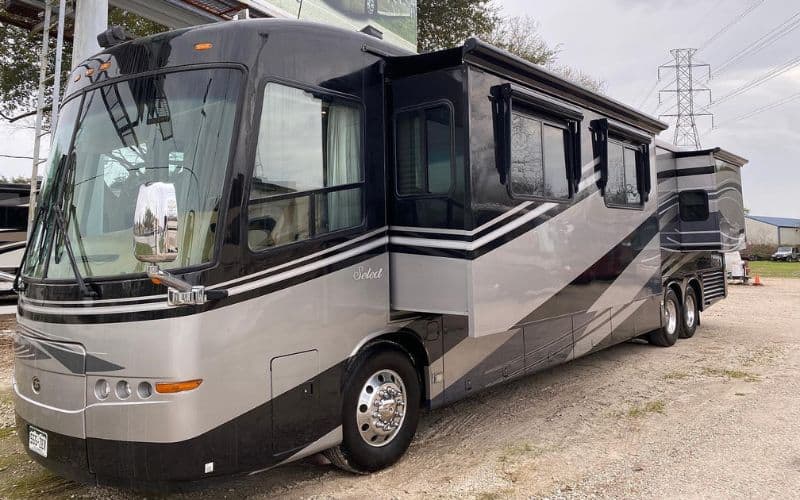
Ad valorem comes from a Latin phrase that means “According to the Value.”
This is proportional to the value of the underlying asset, unlike a specific tax, in that the tax amount remains constant, regardless of the underlying asset’s value.
In our South Dakota residents buying a Montana RV through their own LLC, it means you end up having to pay the 4.25% tax in South Dakota anyway.
The $1,282 you spent registering the vehicle in Montana ends up being money thrown out the window.
Conclusion
While the State of Montana and the attorneys who prepare LLC documents are happy to let you purchase an RV without paying sales tax.
However, your home state might not be so happy with this, and there can be penalties, on top of having to pay the Ad Valorem tax in the end.
There are no bones about it. All states require you to register vehicles in your home state.
Though some have different time frames with which you must do so. If you are driving or towing your RV after that point, it is technically against the law.
All it takes is for you to get pulled over for speeding, and the costs will start to pile up quickly.
If you are driving an RV registered to Montana, but you live in another state, and you are pulled over for speeding or required to show your paperwork for a big rig at a weigh station, you will end up having to pay the Ad Valorem tax in your state anyway.
This will come with the additional loss of the $1,300+ you spent in Montana for the LLC and registration.
In our South Dakota example, this might not be a major risk if you live in Hot Springs or Sioux Falls, where the border to another state is nearby.
Though you might need to take back roads coming home if you have a big rig and you need to avoid a weigh station.
If you live in Pierre in the center of South Dakota, the State Troopers are well-aware of the Montana loophole and are keen to check paperwork if you’re just a few miles over the speed limit.
Especially if you are towing a trailer with Montana plates with a pickup truck registered to South Dakota.
In the end, the fees, penalties, and the high risk of you having to pay Ad Valorem in your home state make for a lot of risks just to save $10,000 or so on a state take by purchasing your RV in another state.
If you are a full-time living in your RV, you can choose Montana as your designated state of residence.
This means you can purchase the RV without paying sales tax and you won’t have to worry about Ad Valorem taxes in any other state.
Though you will need to return to Montana to renew your driver’s license every 8 to 12 years.
Other states with low tax rates other than zero percent for RVs include Alabama, North Carolina, and Colorado.

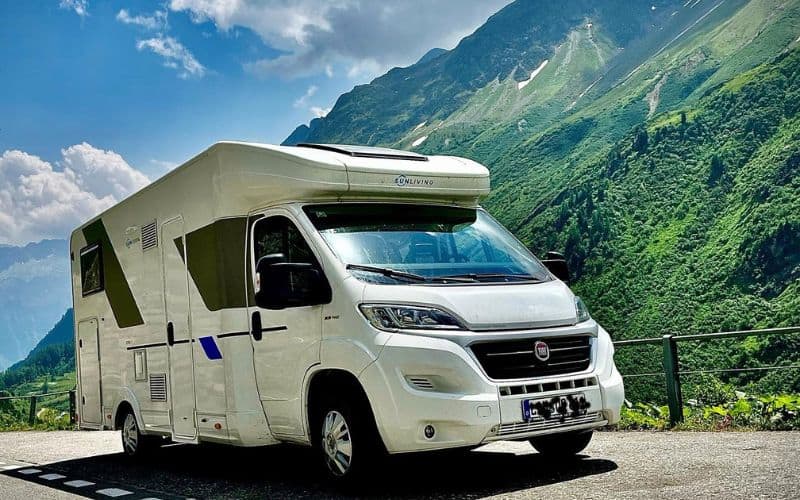

![The 6 Best Four-Season RV Brands for [currentyear] 7 Best Four-Season RV Brands for 2022](https://www.rvingknowhow.com/wp-content/uploads/2022/09/Best-Four-Season-RV-Brands-for-2022-150x150.jpg)

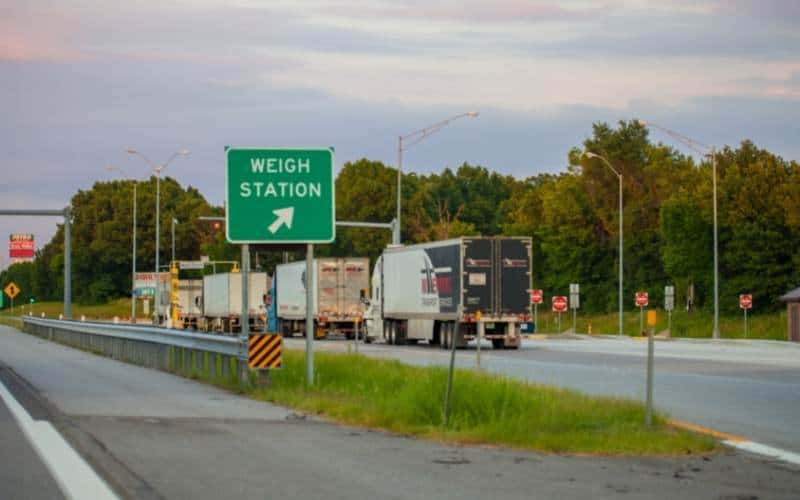
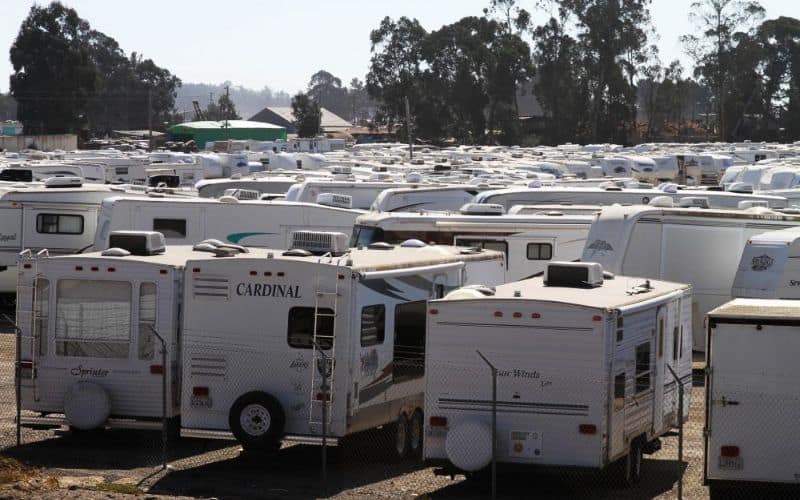
1 Comment
Ol' Jim, hisself
1 year agoThen there is the problem of insurance. In my case, it is cheaper to pay the sales tax than to buy insurance in Montana.